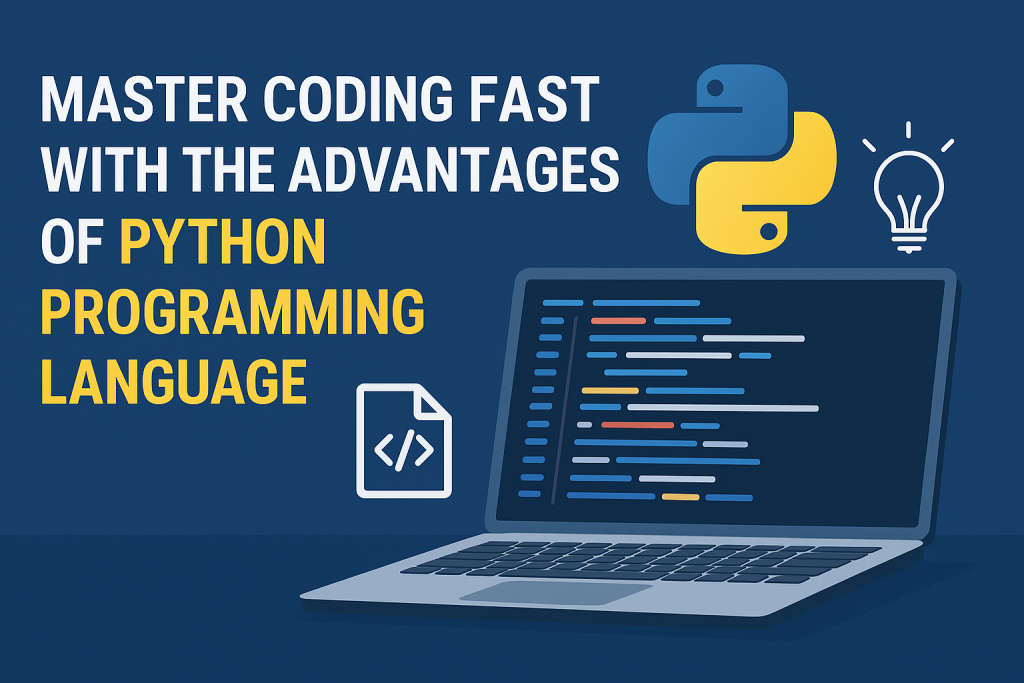Introduction
In today’s world, coding skills are essential. Whether you want to build websites, work in data science, or develop software, learning programming is crucial. Among the many programming languages available, Python stands out. It is simple, powerful, and versatile. Many developers, beginners, and experts choose Python because it helps them master coding fast and achieve real-world results quickly.
In this blog, we will explore the advantages of Python programming language and how it can help you learn coding efficiently. We will also look at why it is the first choice for beginners and professionals worldwide.




